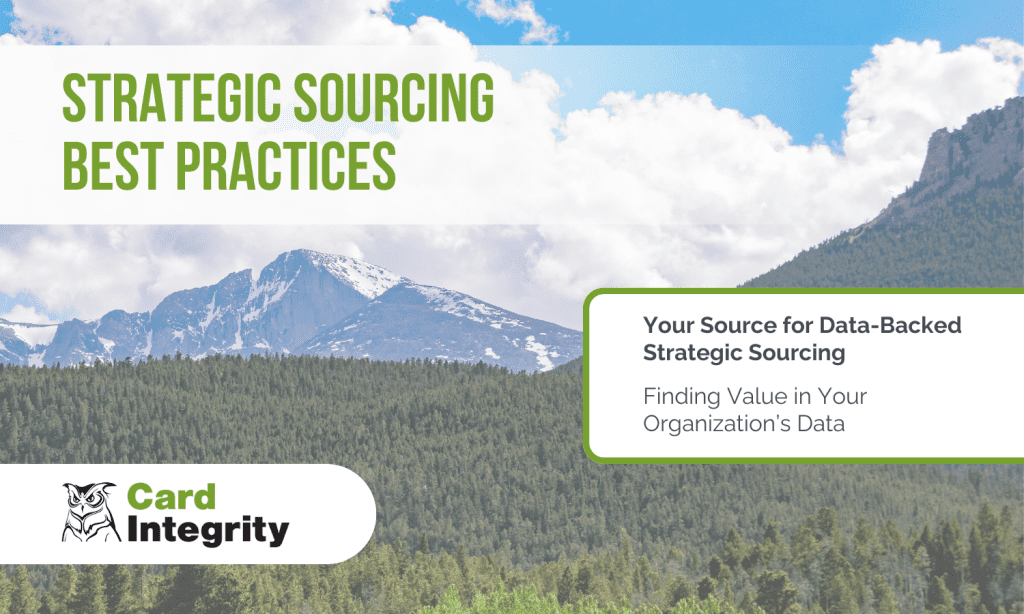In our article “Five Ways Your Company Might Be Overspending,” we introduced our five-part series on identifying and ending overspending. In this article of the series, we examine how your company can avoid overspending by building and improving your relationships with vendors and suppliers.
How your vendor relationships affect overspending
It’s easy to think that your company, as an individual entity, operates very independently, with complete autonomous control over all that it does.
But in actuality, your company is greatly affected — and to some extent, even controlled — by its contact, dealings, and transactions with other companies. The relationships you form with these companies become an integral part of how your business operates.
In realizing that, it should not come as a surprise that a company’s overspend problem could be — and often is — related to its relationships with suppliers and vendors.
How and why this overspend begins
Since the huge roles these relationships play aren’t always fully realized or appreciated, a company might not place sufficient importance on creating and maintaining them.
Poorly examined agreements, lack of communication, and failure to comparison shop between various vendors can cause significant financial opportunities to be easily missed.
What this overspend looks like
Perhaps your management has failed to investigate and research the different types of discounts that might be procured from various vendors.
Perhaps a vendor would be willing to create new discounts especially and specifically for your company based on your volume of spending and loyalty to their brand — but the question is never posed.
Perhaps your current vendor has placed within its agreements various clauses and terms that might benefit them, but financially hurt your company — and yet, your management has signed off on them.
How to end this type of overspending
By working on openness, communication, and honesty, your vendor relationships can become much more beneficial for both sides. Once a higher level of trust is built, it then becomes much easier to convince suppliers to go out on a financial limb and extend discounts and other attractive financial incentives to your company in return for your business.
Here are four ways to encourage relationship building with your vendors and create opportunities to save money.
Closely review contracts and agreements. Contracts and agreements are the backbone of your company’s relationships with vendors. Since they are legal documents, a business attorney should always overlook them before they’re signed. But it’s also important that departments such as Accounts Payable have a chance to review them as well, to ensure that the terms favor your company as well as the vendor.
Your companies policies and procedures should spell out exactly the way vendor agreements are to be handled, as well as what they should and should not contain. With this, Card Integrity can help. We extend our years of experience to create and communicate the proper steps to set up policies that can create strong and healthy vendor relationships.
Create dedicated connections. Select an employee who can be a communication gatekeeper for your vendors. Having a “go-to” person for them creates consistency. Your contact will be able to develop a personal rapport with vendors, which can go a long way in keeping relationships strong, positive, and continuously working in your favor. Use this employee to communicate your goals and needs to your vendors. Likewise, vendors immediately will know to whom they can turn when they have issues that need to be addressed.
Compare and contrast vendors — and their costs. As transactions and their receipts flow in, Card Integrity applies the effort and time to learn who is saving your company the most money in all of your most important spend categories. You’ll be able to quickly and easily weed out the vendors who are charging you the most. That way, you can take steps to communicate with the vendor and reduce your expenses — or move on to a supplier who will charge you less.
Develop long-term relationships. Relationships grow and strengthen over time. By aiming for long-term relationships with your vendors, you’ll create more opportunities to improve communication and form trust. You’ll help foster a desire on the part of both parties to continue doing business with each other. And best of all, long-term vendor relationships can encourage a willingness for compromise in many areas — including price. When you can demonstrate your company’s loyalty over a significant length of time to your supplier’s products, you should expect to be rewarded in kind — via discounts and other incentives of value.
Why spend more?
You want to take full advantage of all savings available to your company. When great relationships are established with your vendors and suppliers, you can feel confident that you are always getting the best deal possible.
Card Integrity can prevent overspending by helping you keep track of vendor usage. Call us today at 630-501-1507 or click HERE to contact us via our online form to get started.
Card Integrity also offers a free sourcing eGuide, Strategic Sourcing Best Practices, that you can download below. Vendor management is an important part of strategic sourcing and is talked about extensively in the guide.
Article originally published February 2020. Updated May 2024.









